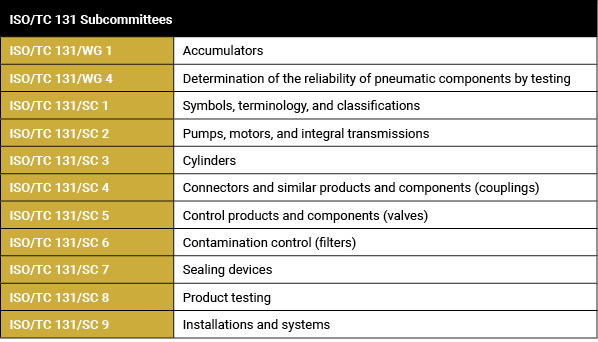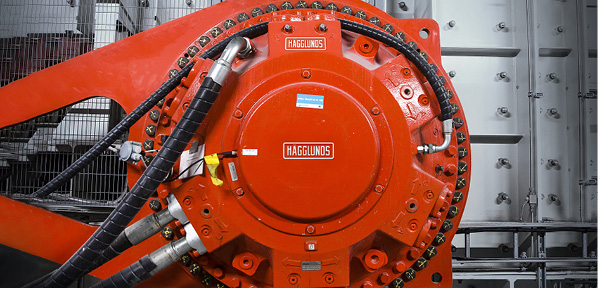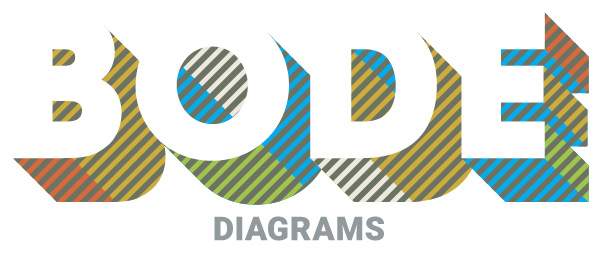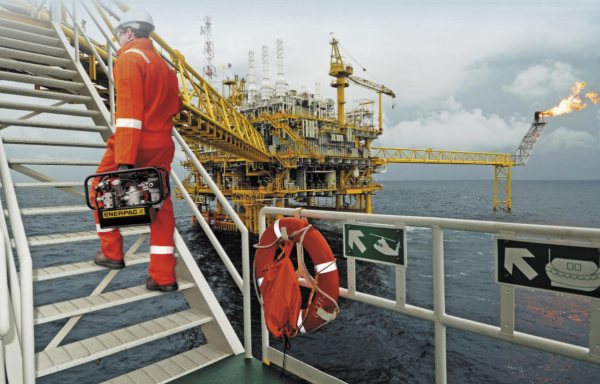Fluid Power Industry Creates ISO Standards that Impact Our World

By Denise Husenica, NFPA International Standards Development Manager, Secretary, ISO/TC 131 and Administrator, U.S. Technical Advisory Groups
The International Standards Organization (ISO) began in 1946 when delegates from 25 countries met in London to create a new international organization “to facilitate the international coordination and unification of industrial standards.” Since then, ISO has published over 22,230 International Standards covering almost all aspects of technology and manufacturing. ISO members hail from 160 countries and consist of 783 technical committees, subcommittees, and working groups to take care of standards development.
Why standards matter in fluid power?
ISO Standards, technical specifications, and technical reports play a key role in fluid power technology. Designing, assembling and maintaining a hydraulic or pneumatic system typically involves putting together a variety of components, often from a variety of suppliers. Without standards for dimensional interchangeability, performance measurement and communication, safety requirements, and testing and inspection methods, these processes would be much more difficult.
ISO Technical Committee 131, fluid power systems, is responsible for 225 published ISO Standards with 44 currently under development. Since 1969, the National Fluid Power Association (NFPA) has worked to foster cooperation among users and manufacturers by being involved in the development of fluid power ISO standards. A public copy of the TC 131 Strategic Business Plan can be found at https://www.iso.org/committee/52232.html.
Standards benefit users because they:
- simplify the use of fluid power;
- help educate users on how to correctly size and apply products;
- determine product performance and how it is measured, allowing comparison;
- communicate needs in a commonly understood language; and
- are written with input from users.
Standards benefit manufacturers because they:
- provide uniform methods for testing products and advertising their ratings;
- help to assure system integrity and safety in the application of fluid power;
- help to improve efficiency of fluid power products and systems;
- simplify the variety of products and sizes in the marketplace;
- encourage new product development; and
- help avoid confusion in communicating with customers.
Standards for fluid power products and systems fall into three basic categories:
- Communication standards define the basic terms, symbols, and other communication tools used in the fluid power industry. Vocabularies, graphic symbols, and dimension codes are typical subjects for communication standards.
- Design standards establish dimensions, tolerances, or other physical characteristics of products. They ensure that fluid power products meet dimensional criteria that enable interfacing and interchangeability.
- Performance standards provide a voluntary method of rating products. Pressure rating, particle counting methods used in contamination analysis, and methods of testing for strength and volume are typical performance standards.
Why get involved in standards development?
One of the strengths of ISO standards is that they are created by the people who need them. In the United States, 145 fluid power industry experts drive all aspects of the standards development process, from deciding whether a new standard is needed to defining the technical content.
Getting involved in this process can bring significant advantages to participating individuals and businesses alike. For example, by:
- having early access to information that could shape the market in the future;
- giving your company a voice in the development of standards; and
- helping to keep market access open.
Getting involved in standards development brings your concerns and needs to bear on the process that can affect you in the future.

How to get involved?
To learn more about the development of fluid power ISO standards contact Denise Husenica at (414) 778-3354 or email dhusenica@nfpa.com.






